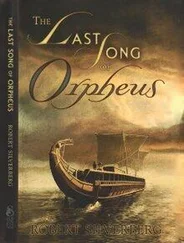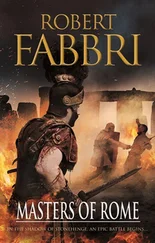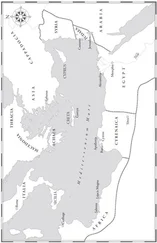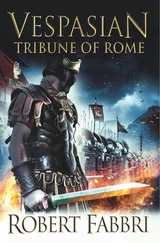Robert Fabbri - Rome's lost son
Здесь есть возможность читать онлайн «Robert Fabbri - Rome's lost son» весь текст электронной книги совершенно бесплатно (целиком полную версию без сокращений). В некоторых случаях можно слушать аудио, скачать через торрент в формате fb2 и присутствует краткое содержание. Год выпуска: 2015, ISBN: 2015, Издательство: Atlantic Books, Жанр: Исторические приключения, на английском языке. Описание произведения, (предисловие) а так же отзывы посетителей доступны на портале библиотеки ЛибКат.
- Название:Rome's lost son
- Автор:
- Издательство:Atlantic Books
- Жанр:
- Год:2015
- ISBN:9780857899668
- Рейтинг книги:5 / 5. Голосов: 1
-
Избранное:Добавить в избранное
- Отзывы:
-
Ваша оценка:
- 100
- 1
- 2
- 3
- 4
- 5
Rome's lost son: краткое содержание, описание и аннотация
Предлагаем к чтению аннотацию, описание, краткое содержание или предисловие (зависит от того, что написал сам автор книги «Rome's lost son»). Если вы не нашли необходимую информацию о книге — напишите в комментариях, мы постараемся отыскать её.
Rome's lost son — читать онлайн бесплатно полную книгу (весь текст) целиком
Ниже представлен текст книги, разбитый по страницам. Система сохранения места последней прочитанной страницы, позволяет с удобством читать онлайн бесплатно книгу «Rome's lost son», без необходимости каждый раз заново искать на чём Вы остановились. Поставьте закладку, и сможете в любой момент перейти на страницу, на которой закончили чтение.
Интервал:
Закладка:
Robert Fabbri
Rome's Lost Son
PONTUS EUXINUS, SEPTEMBER AD 51
Moonlight sheened the Stygian-dark surface of the Pontus Euxinus and reflected up, silver and bright, into the pained eyes of Titus Flavius Sabinus. He groaned as he leant over the rail of a trireme, bobbing at anchor, water slapping its hull, opposite the mouth of the Tyras River. The moon’s reflection was elongated on the swell and then fractured into many replications before re-emerging and contracting back into a near-perfect likeness, as the ship rose and fell in time to the crash of breakers rolling onto the shore just a hundred paces to larboard and starboard.
The constant gyrations of the one point of light in his vision did nothing to alleviate the upheaval within Sabinus’ wracked innards. With another strained convulsion, he sent a thin splatter of bile and red wine down the already tarnished planking to drip onto the rearmost pair of the vessel’s sixty double-banked starboard oars. His groans blended in with the creaking of straining rope and wood.
From his position next to the two steering-oars at the stern of the ship, the trierarchus affected not to notice the involuntary, high-pitched flatulence that accompanied Sabinus’ latest heave, nor did he comment on the fact that he had chosen to vomit on the windward side of the ship; the Governor of the imperial provinces of Moesia, Macedonia and Thracia could be sick wherever he liked on his command as far as the trierarchus was concerned. Indeed, during the two-day run from Novidunum, the home port of the Danuvius Fleet, a hundred or so miles from the river’s delta, to this desolate spot on the Euxine’s coast, the Emperor’s representative had chosen a variety of places in which to spew — not all of them overboard.
Taking quick, shallow breaths, Sabinus cursed the ill-fortune that had forced him to embark on a ship and remain on-board for far, far longer than the contents of his stomach; he had never made any claim to being a mariner. Nevertheless, with his appointment as governor, three years previously, came a responsibility not just to the Emperor but to the Empire itself. If the intelligence that he had learnt from an agent amongst the Getic and Dacian tribes, to the north of the Danuvius, was reliable, the Empire — or at least, the eastern part of it — could be in serious peril.
There had been no question of mistrusting the report; the agent was loyal to Tryphaena, the former Queen of Thracia. The great-granddaughter of Marcus Antonius, Tryphaena was a Roman citizen and fiercely loyal to the Empire. Although she now lived in Cyzicus on the coast of the province of Asia — since she had abdicated at Caligula’s request — she made it her business to be well informed about the affairs of her former subjects and their enemies. If Tryphaena’s agent made a report concerning a threat to the Empire then it was to be taken very seriously.
By the time the man had made the hazardous, overland journey to Novidunum to give Sabinus his account of the arrival of an embassy from Vologases, the Great King of Parthia, to the Kings of the trans-Danuvian tribes, the news was already four days old. Sabinus had then taken the three biremes and single trireme in the harbour and sailed down to the Euxine. There he had headed north up the coast to lay off Tyra, a Greek colony under the sway of the Dacian King Coson, who was no friend of Rome.
Some duties were so critical that they could not be delegated; Sabinus knew that if he reported to the Emperor Claudius, or, more importantly, to the Empress Agrippina and her lover Pallas, the true powers in Rome, that he had sent a subordinate to intercept the Parthian mission but they had slipped through his grasp, then that failure would be seen as Sabinus’. At least if he were unsuccessful he would have no one to blame but himself; but Sabinus had no intention of being so. He could guess what had been discussed. There was nothing that the Dacian, Getic, Sarmatian and Bastanae Kings, all gathered, according to the agent, in a camp on the grasslands fifty miles west of Tyra, had that was of any interest to Parthia other than one uniting attribute: a hatred of Rome. As that hatred spilled over Rome’s northern borders, Parthia, Rome’s bitterest enemy to the east, would either sweep west to try once again to take the coast of Syria and gain access to Rome’s sea for the first time since Rome came east; or, head north, through the Roman client kingdoms of Armenia and Pontus to gain access to the Euxine.
Either way, Rome’s eastern provinces were under threat.
However, Sabinus now had within his grasp an opportunity to find out the timing and direction of such a bold move; with knowledge of how, where and when the blows would fall they could be deflected. It was of vital importance, therefore, that the ambassadors were captured and interrogated as they sailed from Tyra, whose dim lights could be seen on the southern bank of the Tyras estuary.
With another retch and unintentional breaking of wind — one dry this time, the other less so — Sabinus pushed himself upright, sweating despite the cool breeze blowing in from the sea. He watched, in reflection, the ever-shifting image of the half-moon swallowed by a dark bank of cloud; the silver-lined edge undulated on the water’s surface for a few moments before fading and becoming one with the darkening sea. Sabinus looked up; the cloud had blocked all light in the sky for the first time since they had begun their dusk to dawn vigil three nights ago. By day they would heave-to just over the horizon, out of sight of the watch-towers of Tyra, but within interception range of any ship that sailed from the estuary to follow the coastline back round to whatever friendly port the Parthians had embarked from. But Sabinus doubted that the Parthians would sail by day as the agent had informed him that they had arrived at Tyra in the dead of night; that, Sabinus knew, was no mean feat for even the most experienced naval trierarchus. Besides, he was under no illusions that, despite their precautions, their presence had not gone undetected and so the Parthians would be waiting for complete darkness, a time such as now, before venturing out to sea.
Still supporting himself on the rail, Sabinus turned towards the trierarchus. ‘Have the rowers stand to, Xanthos, and signal the three biremes to prepare for action.’ As the trierarchus relayed the order down to the oar-deck below, Sabinus wiped a trail of vomit from his chin and looked towards the bow; he could just make out the shapes of the half-century of marines, sitting around the carroballista mounted on the deck, respecting the standing night-time order for complete silence. He signalled to the centurion commanding them with a hand gesture that they should rise and prepare themselves. From below came the muted sounds of the ship’s one hundred and twenty rowers taking their places, one man each on the lower bank of oars and two on the upper. Trying to clear his head, blurred by nausea, Sabinus glanced down and saw the oars being aligned ready for the initial pull that would propel the vessel forward as the first few drops of rain spattered onto the sea and hit the ship’s deck with a slow, irregular drumming.
With the ship readied, Sabinus adjusted his red woollen cloak so that it warmed his arms; he tightened the red sash around the midriff of his bronze back- and breastplates and adjusted the shoulder belt in order that his sword hung straight on his right hip. Having replaced his helmet and tied the chinstrap, he picked up his standard-issue semi-cylindrical shield, walked as steadily as possible forward to the bow and stood next to the marine centurion, beneath the towering corvus that they would use to board an enemy ship, and prepared to wait for the remaining three hours of the night, peering into the gloom that deepened as the rain intensified.
Читать дальшеИнтервал:
Закладка:
Похожие книги на «Rome's lost son»
Представляем Вашему вниманию похожие книги на «Rome's lost son» списком для выбора. Мы отобрали схожую по названию и смыслу литературу в надежде предоставить читателям больше вариантов отыскать новые, интересные, ещё непрочитанные произведения.
Обсуждение, отзывы о книге «Rome's lost son» и просто собственные мнения читателей. Оставьте ваши комментарии, напишите, что Вы думаете о произведении, его смысле или главных героях. Укажите что конкретно понравилось, а что нет, и почему Вы так считаете.












